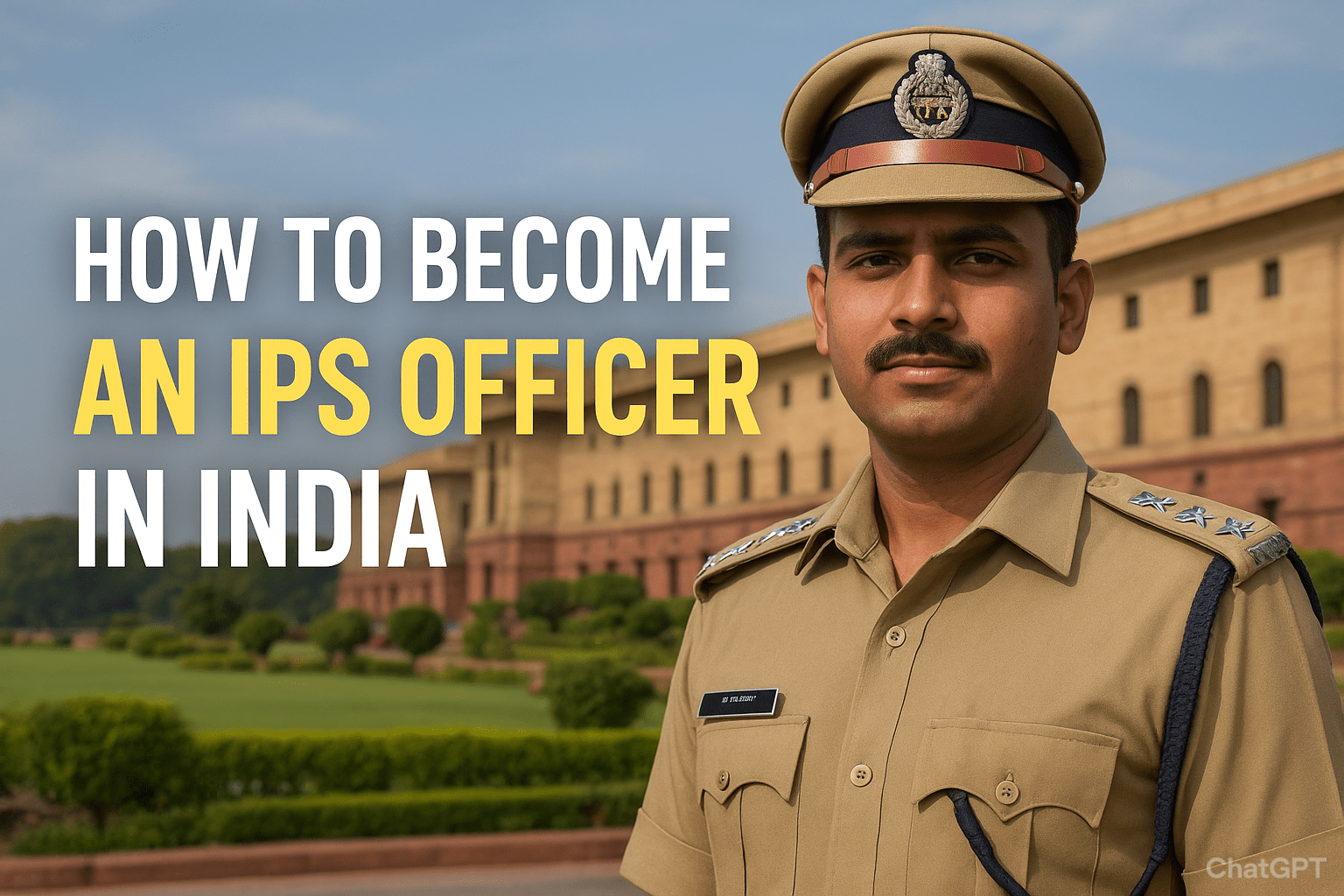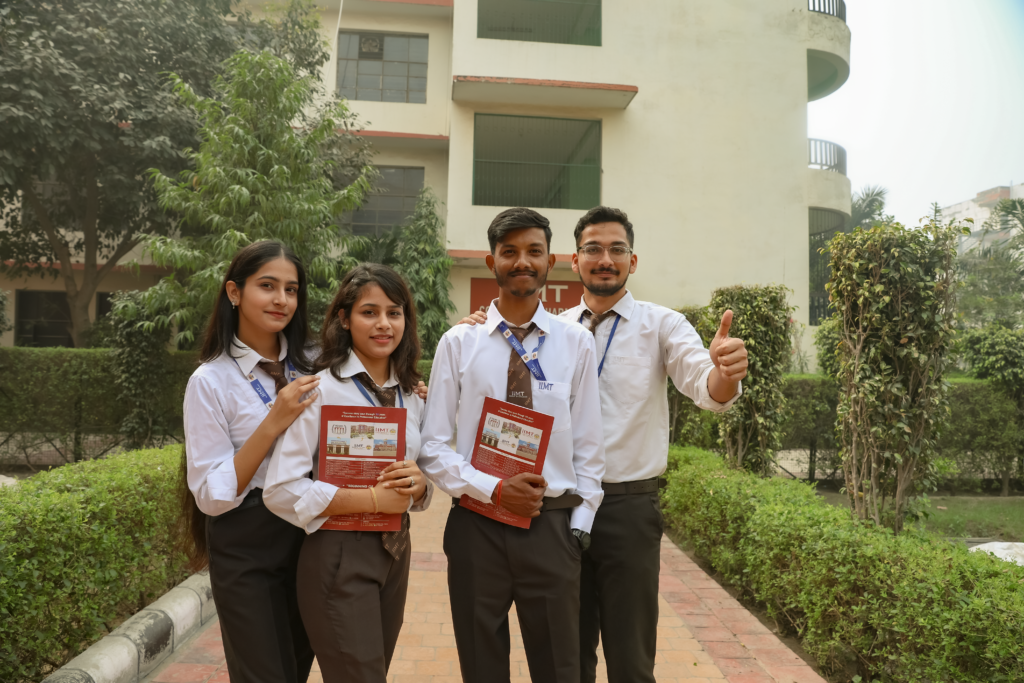Becoming an Indian Police Service (IPS) officer is one of the most prestigious achievements in India. IPS officers are leaders in law enforcement, responsible for maintaining public order, preventing crime, and ensuring the security of citizens. Every year, thousands of aspirants dream of cracking the UPSC Civil Services Examination to join the IPS. But the journey requires clarity, strategy, and discipline.
If you are wondering how to become an IPS officer in India, this article will walk you through the complete process—eligibility, exam details, preparation tips, training, and career prospects.
Who is an IPS Officer?
The Indian Police Service (IPS) is one of the All India Services, along with IAS and IFS. IPS officers hold key positions in the police, paramilitary forces, and intelligence agencies. Their roles include:
- Maintaining law and order
- Preventing and investigating crimes
- Leading state and central police forces
- Contributing to national security and disaster management
- Working in specialised agencies like CBI, NIA, IB, and RAW
The position not only demands intellectual ability but also physical fitness, decision-making skills, and leadership qualities.
Eligibility Criteria for Becoming an IPS Officer
Before you begin preparation, ensure that you meet the eligibility requirements set by the Union Public Service Commission (UPSC):
- Nationality
- Must be an Indian citizen.
- Educational Qualification
- A bachelor’s degree from a recognised university is mandatory. Students in their final year are also eligible to apply.
- Age Limit
- General category: 21 to 32 years
- OBC category: 21 to 35 years
- SC/ST category: 21 to 37 years
- Additional relaxation is available for certain categories, like defence personnel and ex-servicemen.
- Number of Attempts
- General category: 6 attempts
- OBC: 9 attempts
- SC/ST: Unlimited attempts till the maximum age limit
- Physical Standards
- Height:
- Male: Minimum 165 cm (160 cm for certain categories)
- Female: Minimum 150 cm (145 cm for certain categories)
- Vision: Corrected vision is allowed, but severe visual impairment disqualifies a candidate.
- Medical fitness is thoroughly checked during the selection process.
The UPSC Civil Services Examination (CSE)
The journey to becoming an IPS officer begins with the UPSC Civil Services Examination, one of the toughest competitive exams in India. The exam is conducted in three stages:
- Preliminary Examination (Prelims)
- Consists of two objective-type papers:
- General Studies (GS Paper I)
- Civil Services Aptitude Test (CSAT – GS Paper II)
- This stage is qualifying in nature.
- Main Examination (Mains)
- Nine descriptive papers, including:
- Essay
- Four General Studies papers
- Two Optional subject papers
- Two qualifying papers (Indian language and English)
- Marks scored in the Mains play a major role in determining the final ranking.
- Personality Test (Interview)
- Candidates face the UPSC interview board, where they are assessed on personality, decision-making, ethics, and current affairs knowledge.
The combined performance in Mains and Interview decides your All India Rank (AIR). Based on rank and preferences, candidates are assigned services such as IAS, IPS, IFS, IRS, etc.
IPS Training at Sardar Vallabhbhai Patel National Police Academy (SVPNPA)
Once selected, IPS probationers undergo rigorous training at SVPNPA, Hyderabad. The training includes:
- Physical fitness and endurance sessions
- Weapons and combat training
- Law, criminology, and forensic science
- Leadership and management development
- Field training in police stations and districts
This training transforms candidates into disciplined, courageous, and efficient officers ready to handle real-life challenges.
How to Prepare for the IPS Exam?
Cracking UPSC requires a smart strategy. Here are some effective preparation tips:
- Understand the Syllabus Thoroughly
- UPSC syllabus is vast. Break it down into subjects—History, Geography, Polity, Economy, Environment, and Current Affairs.
- Create a Study Plan
- Dedicate at least 6–8 hours daily with a mix of reading, revision, and practice tests.
- Follow Standard Books
- NCERTs (Class 6–12) for basics
- Standard books like Laxmikant for Polity, Spectrum for Modern History, and Shankar IAS for Environment
- Stay Updated with Current Affairs
- Read newspapers like The Hindu or The Indian Express daily.
- Use reliable monthly current affairs magazines.
- Practice Answer Writing
- UPSC Mains requires crisp, well-structured answers. Practice writing daily.
- Take Mock Tests
- Regularly attempt mock tests for Prelims and Mains to analyse strengths and weaknesses.
- Focus on Physical Fitness
- Since IPS requires medical fitness, maintain regular exercise, running, and yoga to stay fit.
Career Growth and Opportunities in IPS
An IPS officer’s career is full of responsibilities and opportunities:
- Entry-level posts: Assistant Superintendent of Police (ASP)
- Mid-level posts: Superintendent of Police (SP), Deputy Inspector General (DIG)
- Senior-level posts: Inspector General (IG), Additional Director General (ADG), Director General of Police (DGP)
IPS officers can also be deputed to central organisations such as:
- Central Bureau of Investigation (CBI)
- National Investigation Agency (NIA)
- Intelligence Bureau (IB)
- Research and Analysis Wing (RAW)
- Border Security Force (BSF) and CRPF
This opens opportunities not just in law enforcement but also in shaping national security policies.
Challenges and Rewards
While the role of an IPS officer is highly respected, it comes with challenges:
- Long working hours
- Political pressures
- Handling sensitive law and order situations
Yet, the rewards are immense:
- Respect and prestige in society
- The power to bring positive change
- Opportunity to serve the nation directly
Final Thoughts
Becoming an IPS officer in India is not just about clearing an exam—it is about determination, resilience, and a lifelong commitment to public service. If you dream of wearing the IPS uniform, start early, plan wisely, and stay consistent in your preparation.
Your journey may be challenging, but the pride of serving the nation as an IPS officer makes it worthwhile.
Want to explore more inspiring career paths and guides? Stay tuned to FameNest—your trusted platform for career growth, learning, and success stories.






Comments (0)
Login to post a comment.